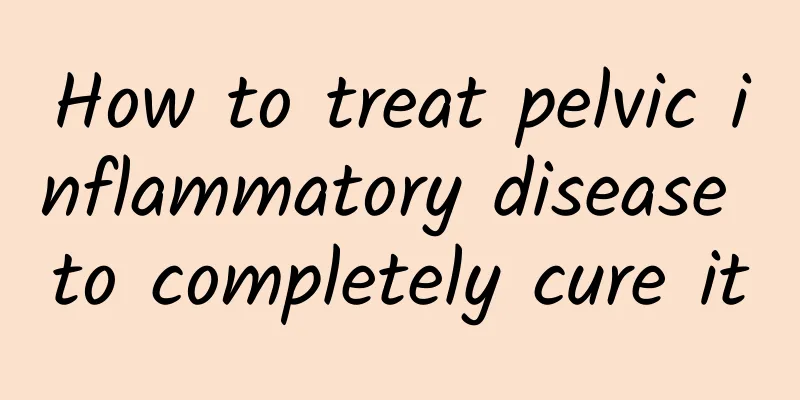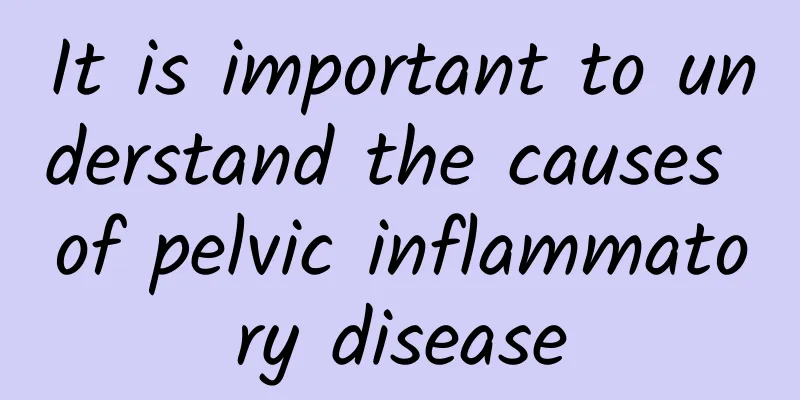How to treat pelvic inflammatory disease to completely cure it

|
Pelvic inflammatory disease is an infectious disease of the pelvic organs. The key to treating pelvic inflammatory disease is to completely eliminate the pathogens and restore the normal function of the pelvic organs. The following are some suggestions for treating pelvic inflammatory disease: 1. Antibiotic treatment: Pelvic inflammatory disease is usually caused by bacterial infection, so antibiotics are the first choice for treatment. According to the results of bacterial culture and drug sensitivity test, choose appropriate antibiotics for treatment and complete the course of treatment. 2. Prevent recurrence: During treatment, avoid sexual intercourse to prevent infection from recurring. At the same time, it is recommended to follow good personal hygiene habits during treatment and keep the vulva clean and dry. 3. Anti-inflammatory and analgesic: Pelvic inflammatory disease is often accompanied by pain and inflammation. Anti-inflammatory drugs or non-steroidal anti-inflammatory drugs can be used to relieve pain and inflammatory reactions. 4. Repair pelvic organ function: Pelvic inflammatory disease may cause inflammation and fibrosis of pelvic organs, affecting their normal function. After treatment, if symptoms such as pelvic pain, irregular menstruation, and infertility occur, it is recommended to seek medical attention in time for further examination and treatment. 5. Regular follow-up: After treatment, it is recommended to regularly check the condition of pelvic inflammatory disease to ensure that the pathogens have been eliminated and to rule out the possibility of recurrence. Treatment of pelvic inflammatory disease requires comprehensive consideration of the cause, condition and individual differences of the patient. Early detection, early treatment and standardized medication are the key to treating pelvic inflammatory disease. At the same time, effective recovery and preventive measures are also needed after treatment to avoid recurrence of the disease and the occurrence of complications. |
<<: Can I have an abortion at four months?
>>: Why do fat people have nosebleeds?
Recommend
The harm that cervical precancerous lesions can cause to the body
The occurrence of cervical precancerous lesions b...
Three meals of rice with chili for weight loss caused 18 holes in the stomach
Eating a lot of chili peppers in the hope of losi...
Treatment of abnormal symptoms of tearing leucorrhea
Abnormal symptoms of tearing vaginal discharge us...
Eating fish heads can prevent aging and improve skin health! The heat mine is hidden here...
During the Spring Festival, families reunite and ...
What symptoms of pelvic inflammatory disease can cause vaginal bleeding?
What symptoms of pelvic inflammatory disease can ...
How to treat cervical erosion after abortion? These methods are very effective in treating cervical erosion.
Nowadays, there are a lot of women who choose abo...
Can I get vaccinated after cervical precancerous lesions turn negative?
Yes. HPV vaccine can be administered after cervic...
How to choose a hospital for the treatment of cervical erosion? Is it a professional and formal hospital?
Although cervical erosion is a common disease, th...
What are the symptoms of cervicitis in women?
Female patients with early-stage cervicitis often...
Ectopic pregnancy can be fatal if not treated promptly
Ectopic pregnancy is a common acute abdomen. As t...
Chinese herbal medicine and dietary therapy for patients with cervical erosion
Cervical erosion is a common gynecological diseas...
Fat man climbs a mountain to lose weight and his knee meniscus breaks
A middle-aged man in Taichung found that his weig...
Build a body that is less prone to fatigue! Do hip stretching exercises to make the pelvis more stable
These stretches affect the base of the body, name...
Why do women have cervical erosion? Four major reasons cause cervical erosion
Cervical erosion is a common gynecological diseas...
Can cervical warts be completely cured?
Whether it is advertisements or movies and TV dra...









